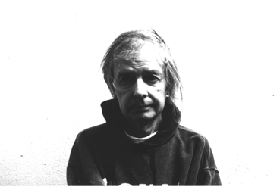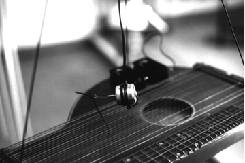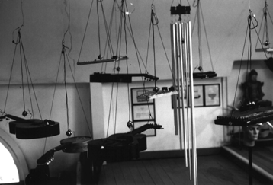JONES: Okay, I'll do a very short history. I studied jazz, and then John CAGE sent me to study with Earle BROWN. And I started making what I call "music machines" in the sixties--in late '61.
NAKAGAWA: In New York?
JONES: Yes, because no one would play my music. I was composing, and I started to make the music machines as an experiment in sound. And people liked them, and then they started to be put into gallery shows and into museums. And then doing performances in Fluxus.
 |

